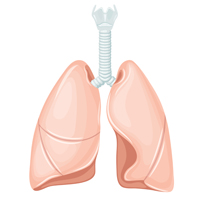 While many people have heard of mesothelioma and know that it is a cancer in the lungs caused by asbestos, peritoneal mesothelioma is rarer, and therefore less well-known.
While many people have heard of mesothelioma and know that it is a cancer in the lungs caused by asbestos, peritoneal mesothelioma is rarer, and therefore less well-known.
Peritoneal mesothelioma is a type of cancer that occurs in the lining of the abdomen, and it is also associated with exposure to asbestos. Since it is less known, it can often be misdiagnosed. Though incurable like pleural mesothelioma, there are treatments available.
Some symptoms of the illness include: changes in bowel habits, night sweats, nausea or vomiting, diarrhea or constipation, abdominal pain, abdominal swelling, anemia, fatigue, a feeling of fullness, and unexplained weight loss.
To diagnose peritoneal mesothelioma, a doctor may request a chest x-ray and a CT scan. This will show any tumors or spread of cancer. Additionally, a biopsy will be performed to confirm the diagnosis.
Researchers believe that peritoneal mesothelioma is caused when asbestos fibers are inhaled or ingested into the body. This is similar to the cause of mesothelioma, which affects the lungs.
Treatment for this type of mesothelioma typically consists of surgery, followed by a type of heated chemotherapy called heated intraperitoneal chemotherapy (HIPEC). Research shows that this type of multimodal treatment improves the chances of longer-term survival.
In order to qualify for the surgery with the intent of increasing survival, the cancer must not have spread past the abdomen. This treatment is only effective in the early stages of the cancer.
The surgery can also be performed in a later stage as a palliative treatment. This type of surgery is performed when the tumors have spread beyond the abdomen, and removing the tumors will relieve pain and enhance the quality of life for the patient.
But surgery will not prolong the life of the patient in a significant way. Patients at this stage of the illness will usually survive about a year after diagnosis.
Chemotherapy can be started either before or after surgery. Research has shown that applying chemotherapy to the abdomen right after surgery, and not systematically in the body, increases survival rates. One study showed that 75 percent of patients who received the post-operative chemotherapy lived longer than five years afterward.
Some patients can also elect to have another, less-invasive procedure performed, where any excess build-up of fluid in the abdomen can be relieved. This can also enhance the quality of life for the patient if the fluid is causing discomfort.
Radiation is not recommended as often for peritoneal mesothelioma, because of the location of the tumors in the abdomen, and since they can wrap around the liver and intestines.
There are other ongoing clinical research trials of treatments for peritoneal mesothelioma, such as immunotherapies.
Peritoneal mesothelioma patients should know that they are not alone, and that our attorneys can assist in their case, even though their illness may be rarer than mesothelioma related to the lungs. The Philadelphia mesothelioma lawyers at Brookman, Rosenberg, Brown & Sandler strive to seek maximum recovery for our clients. To make an appointment in our Philadelphia office, call us at 215-569-4000, or contact us online today to provide you with legal advice concerning your case.